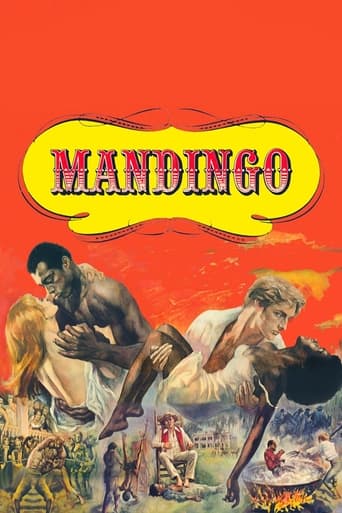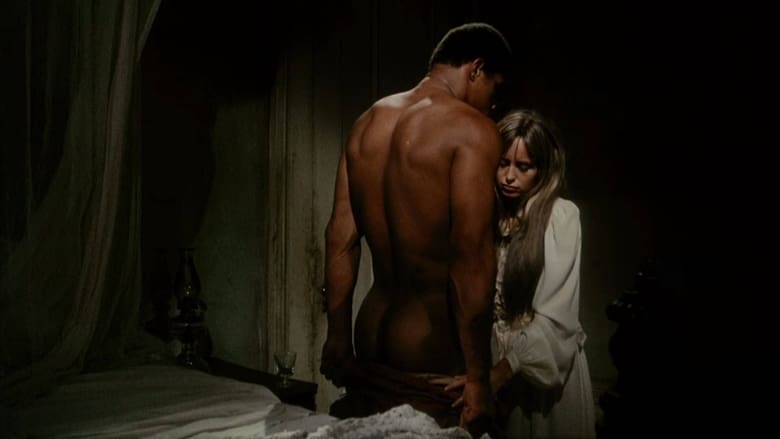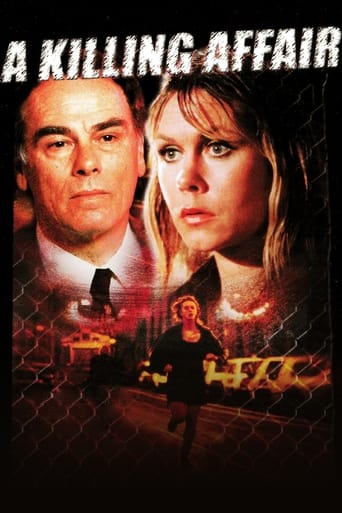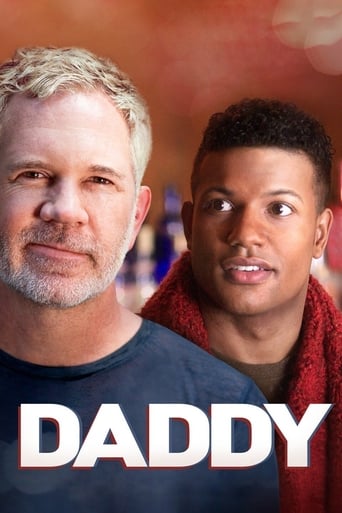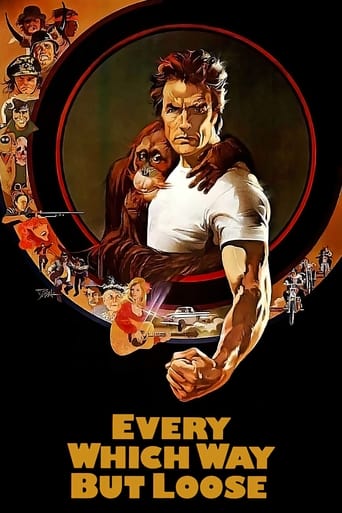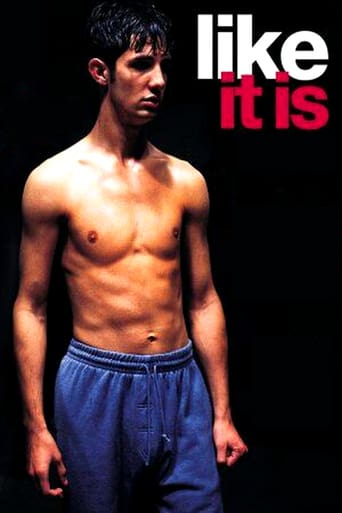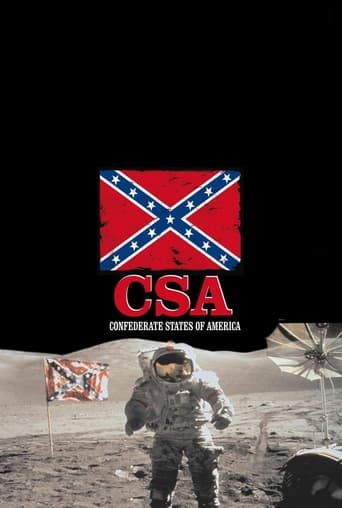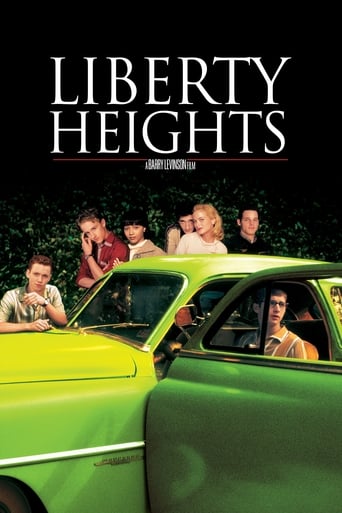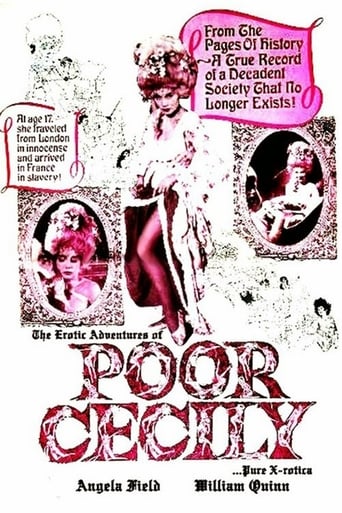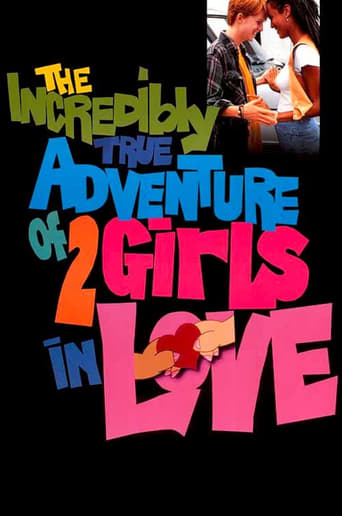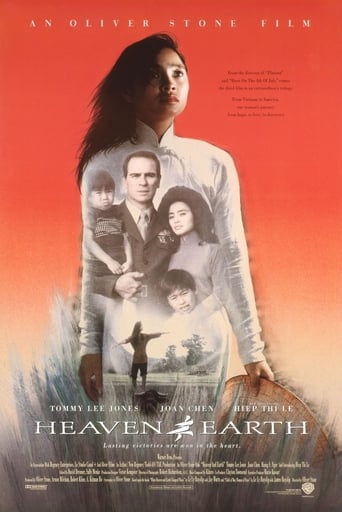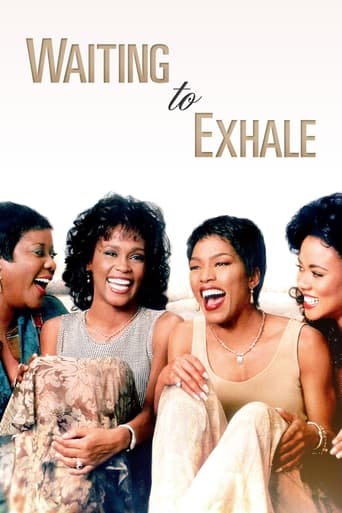Mandingo (1975)
Warren Maxwell, the owner of a run-down plantation, pressures his son, Hammond, to marry and produce an heir to inherit the plantation. Hammond settles on his own cousin, Blanche, but purchases a sex slave when he returns from the honeymoon. He also buys his father a new Mandingo slave named Mede to breed and train as a prize-fighter.
Watch Trailer
Cast


Similar titles
Reviews
In slave-owning Louisiana, Hammond Maxwell (Perry King) is a dutiful son managing his family's rundown plantation and its slaves. He is considered kind compared to other slave owners but he is still fully involved in the institution. He has sex with his slave Ellen and takes a liking to her. He marries his cousin Blanche but their marriage is troubled from the start. From his father, he gets obsessed with purchasing a Mandingo, a slave gladiator. He buys hulking submissive Mede (Ken Norton) who he hopes to turn into a fighter.It's fascinating how times have change. This is comparable to 12 Years a Slave. While 12 got Best Picture, this got panned. The violence and brutality is matter of fact. There is nothing special in the whipping and the raping. They are everyday occurrences. Even Hammond is not out of the ordinary. He still has some of his humanity which only makes this even darker and more real. Back in '75, this brutal depiction of slavery was probably too much for many and was ahead of its time. It doesn't turn it into melodrama. It lets the audience exist in the dark times. Tarantino sees this as influencing his Django Unchained. It is missing more from the slaves' side of their existence. It would probably be better to have both Hammond and Ellen as protagonists. It needs to get inside the slaves' mind. Despite that, this is still a shocking and compelling movie.
Richard Fleischer's Mandingo is a terrifying, thematically labyrinthine portrait of slave-owning America's moral and psychological wretchedness, positing a corruption so deep that generations won't succeed in washing the stain away (and haven't). Reduced to a plot summary or recounting of "high points", the film sounds lurid and exploitative, and has often been dismissed or mocked as such. But in its embrace of melodrama and what's sometimes labeled "scenery-chewing" acting, it digs painfully deep into the sick underpinnings of the culture - one in which the economic model demands that the humanity of the slaves be denied, and yet in which their presence makes that impossible, generating hypocrisy upon perversity. Physicality and sexuality lies at the centre of the madness of course - the absence of imprisoning formal structures makes their relationships with black women more satisfying to the white men than those with their wives, to a degree that's all but formally admitted and embedded in the culture, with the consequent flow of children being regarded as so much by-product; in contrast of course, the prospect of male black sexuality crossing the colour line is the ultimate horror (and a white woman who invited this would merely be sacrificing her right to go on living). But at the same time, the film takes us deep into how the white males project their own physical inadequacies onto their prize "inventory" - a prizefighting scene goes on virtually in agonizing real time, forcing us to confront the depth of the investment in blood and brutality and enforced submission. Indeed, the whole film is unnervingly direct and visceral, seeped in its time and place, even as the viewer inevitably looks for broader parallels or redemptions. But the only organized revolt depicted here is rapidly extinguished, and the ending suggests no immediate prospect of sustained resistance or relief, only of continuing madness in shifting configurations.
Conditions of slaves in the Deep South prior to The Civil War are given a fairly gritty and audacious treatment in this sometimes-sensational motion picture. Mason plays the patriarch of a large plantation who buys and sells slaves while looking for the perfect Mandingo (referring to an a-level breed of slave from a particular African region) with which to impregnate a female he owns. His son King, whose gait is affected by a childhood riding accident, aids him in his quest when he isn't deflowering the young female slaves, which is his right and privilege under the conditions of ownership. When it's time for King to marry, naturally he turns to a cousin (!) and proceeds to wed George. However, discontentment rears its ugly head almost immediately and he finds himself developing real feelings for one of his "bed warmers," the slave Sykes. Meanwhile, he has purchased towering Norton on his father's behalf and is using him as a stud for his female Mandingo and also as a fighter, which yields heavy cash for the estate. Unfortunately, when now-alcoholic George begins to grow jealous of Sykes, she puts into motion a series of events that leads to tragedy for many people. Mason gives an unfiltered performance of cranky, commandeering bigotry and, while it isn't the most pleasurable thing to witness, it is effective in its way. His character divests himself of rheumatism by pressing his feet against the abdomens of naked or semi-clad black boys! King somehow manages to invoke a strain of sympathy in his rash and regimented character, perhaps because even worse people surround him at various times. At around eighteen minutes in, he gives the world a glimpse of Perry, Jr. George is simultaneously desperate and vaguely sympathetic and yet riotously awful. Some of her tantrum scenes rank right up there with Faye Dunaway in "Mommie Dearest!" Her "hair" remains an enigma throughout, sometimes thin and fine with frosted streaks and other times a wealth of thick brown fluff. Former prize fighter Norton has a eye-popping physique, which is shown to great advantage, but as an actor, he is pretty much knocked out in the first round. His character is given quite little to say, which helps. Sykes uses a tenderness and vulnerability to make hers one of the more endearing characters even if her vocal delivery is sometimes a bit contemporary. Others in the cast include Ward as a long-suffering slave, Hayman as a poor man's Hattie McDaniel, Masters as a sadistic, entitled monster, and "The Jeffersons" neighbor Benedict as a pragmatic slave trader. Tedrow, best known as one of "Dennis the Menace's" neighbors, appears as a worried midwife. Despite its reputation as a tawdry, exploitive piece of screen excrement, there are top-level creative people in many departments including composer Jarre, production designer Leven, costumer Roth and cinematographer Kline. It's just such an in-your-face, no-holds-barred, non-gilded look at the situation that, compared to so many other films depicting that era, that it stuns with regularity. There's no chance of seeing Ashley Wilkes toddling by. The dialogue is rough and crass, the violence is vivid, the sexuality is (or, at least, was at the time) eye-opening. The film is guilty at times of taking pleasure in the unpleasant, but it has merit for the way it refuses to turn away from the cruelty and oppression that American slaves endured. It's interesting to note the hypocrisy of the characters, too. King sees fit to sleep with every virgin slave and yet expects his betrothed to be intact. Filmed entirely on location, there is a bleak, rotten quality to the setting that makes the events even more downbeat. It's not a film for everyone, but it is one that simply could not and would not be made today and that holds a certain curiosity value. An even more raunchy sequel "Drum" followed a year later.
If you can imagine Kenneth Williams in the James Mason role and Jim Dale as his son,Liz Fraser as the daughter in law you may get some idea where I'm coming from.The idea that this preposterous trash was ever meant to be anything other than exploitative semi - porn is absolutely ludicrous. The employment of ex - boxer Ken Norton in the title role should give you a clue.He's big and he's black..........er,that's about it really.There were many excellent black actors the producers could have chosen if "Mandingo" was supposed to be a serious exploration of the horrors of slavery,why,in heaven's name pick a man whose only attribute is his size? I remember seeing the book on display at W.H.Smith,a well - muscled bare chested black man on the cover,his arm round a pouting blonde with a strategically torn silk blouse inadequately covering her large breasts....clearly a serious work of scholarship.................. It is fruitless for the makers of this movie to deny its leering voyeuristic racist heart.With the benefit of many years hindsight,they have claimed some absurd post -modern interpretation for their piece of smutty trash.It is - so they say - presenting a "warts and all" picture of life in the South before the Civil War.Yeah,right.There was a place for movies like "Mandingo" in the fly - blown windows of dingy back street shops selling surgical appliances and something for the weekend 30 years ago.There isn't any more,and everybody concerned with making should keep very quiet about it and hope that eventually it will be forgotten.

